The Allen School, one of the first institutions that provided educational opportunities for African American women, was dedicated with a historical marker at 205 College St. Oct. 21.
The school was originally located at 27 College Place, now the home of the Explore Asheville Convention and Visitor’s Bureau. The dedication sign is located in front of the Buncombe County Register of Deeds. Photos of the event can be found below.
News release from the N.C. Department of Natural Resources announcing the event with additional background information:
A school in western North Carolina founded in the late 1880s that provided educational opportunities to underserved populations, including African American women, soon will be recognized with a North Carolina Highway Historical Marker.
Going by several names over the years, the institution established in Asheville in 1887 was known for the longest period as Allen High School. It built a reputation as a respected preparatory school for young African American women. The school was founded by L. M. Pease and his wife Ann Pinney Pease, who had both worked as Methodist missionaries among the disadvantaged in New York City. They initiated educational programs for both whites and African Americans in the area.
The Peases purchased two properties that would serve their educational goals. One became the Asheville Home Industrial School, which was one of the schools that served as inspiration for the modern Warren Wilson College. They also purchased property near Beaucatcher Mountain, converting an old livery stable into a private school that served Black children during the day and Black adults in the evening. The school was known as the “Industrial School on College Street.” The school’s three African American teachers lived in a small house on the property.
The Peases, whose health was failing, turned over the operation of the Industrial School to the Women’s Home Missionary Society of the Methodist Episcopal Church in July 1887. By the end of that year, the school had over 200 students, both boys and girls. Course offerings were expanded and, as public schools opened, early grades were dropped. In 1896 the school became a residential preparatory school for Black women and was re-named the Allen Industrial Home School the following year for benefactor Marriage Allen of London, who contributed to a dormitory.
Oral history interviews document that students from Cherokee, Polk, Clay, Buncombe, Swain, and Yancey counties, where high schools for Black youth were inadequate or non-existent, regularly sought education at the Allen School. The school also attracted students from across the country. By the 1950s, Allen sent 50% of its graduating students to college. Musician and social activist Nina Simone and NASA’s “human computer” Dr. Christine Darden are among the graduates of the Allen School. The Allen School closed in 1974 as enrollment declined.
The marker commemorating Allen High School will be unveiled Saturday, Oct. 21 at 2 p.m., at 205 College St., in Asheville. A reception hosted by Explore Asheville will be held at 27 College Place following the ceremony.
For additional information about the historical marker please visit https://ncmarkers.com/Markers.aspx?MarkerId=P-101
About the North Carolina Department of Natural and Cultural Resources
The N.C. Department of Natural and Cultural Resources (DNCR) manages, promotes, and enhances the things that people love about North Carolina – its diverse arts and culture, rich history, and spectacular natural areas. Through its programs, the department enhances education, stimulates economic development, improves public health, expands accessibility, and strengthens community resiliency.
The department manages over 100 locations across the state, including 27 historic sites, seven history museums, two art museums, five science museums, four aquariums, 35 state parks, four recreation areas, dozens of state trails and natural areas, the North Carolina Zoo, the North Carolina Symphony, the State Library, the State Archives, the N.C. Arts Council, the African American Heritage Commission, the American Indian Heritage Commission, the State Historic Preservation Office, the Office of State Archaeology, the Highway Historical Markers program, the N.C. Land and Water Fund, and the Natural Heritage Program. For more information, please visit www.ncdcr.gov.
Photos from the Oct. 21 event:
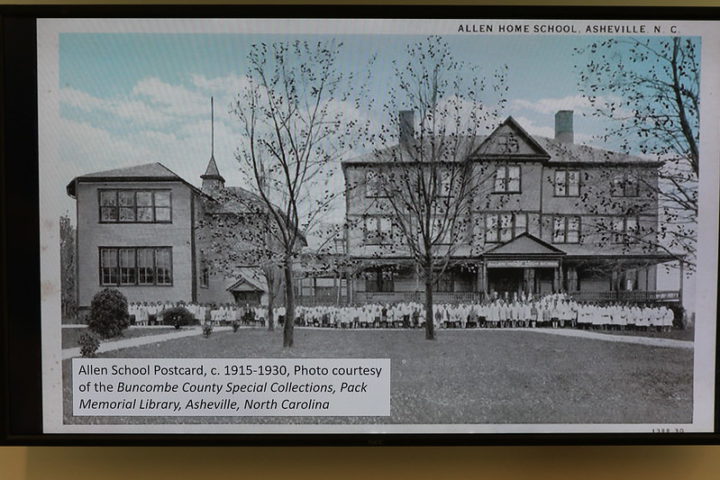
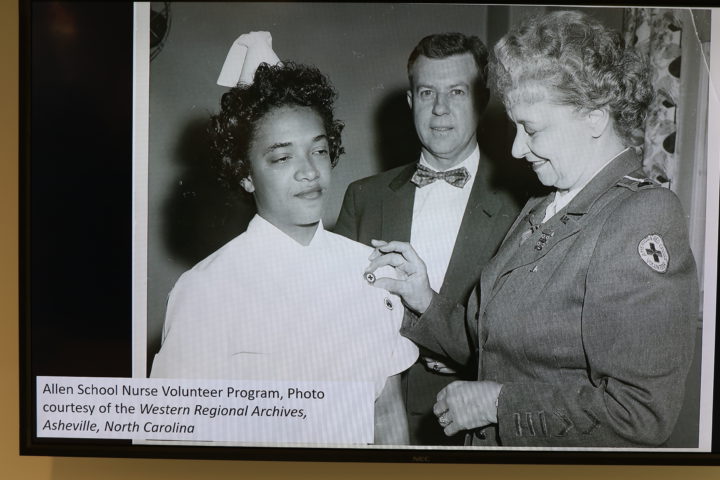
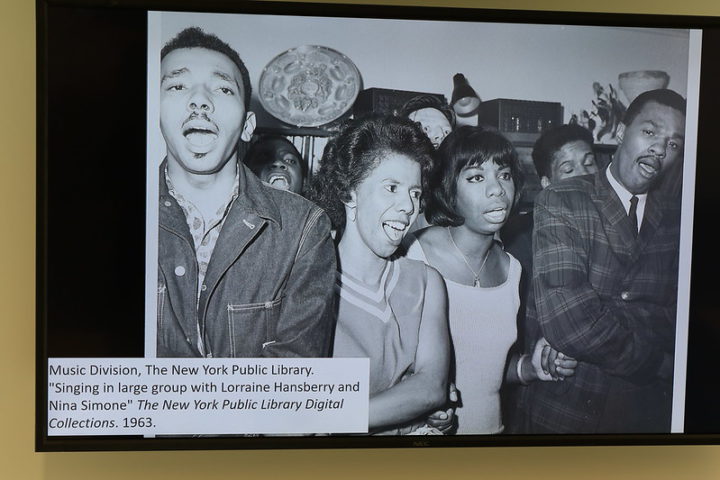

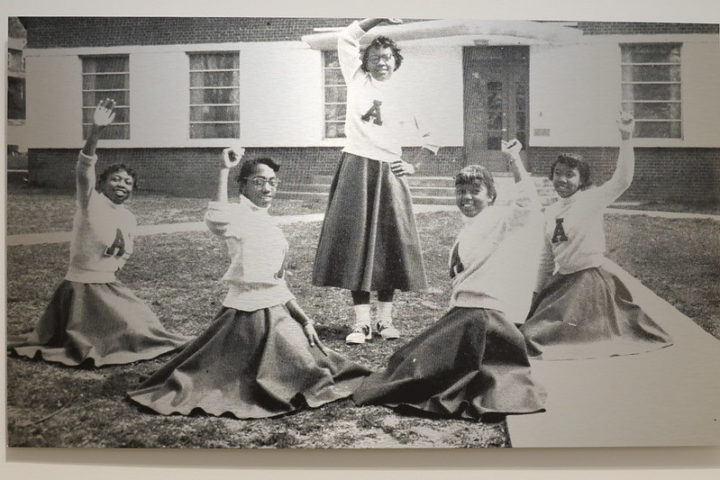
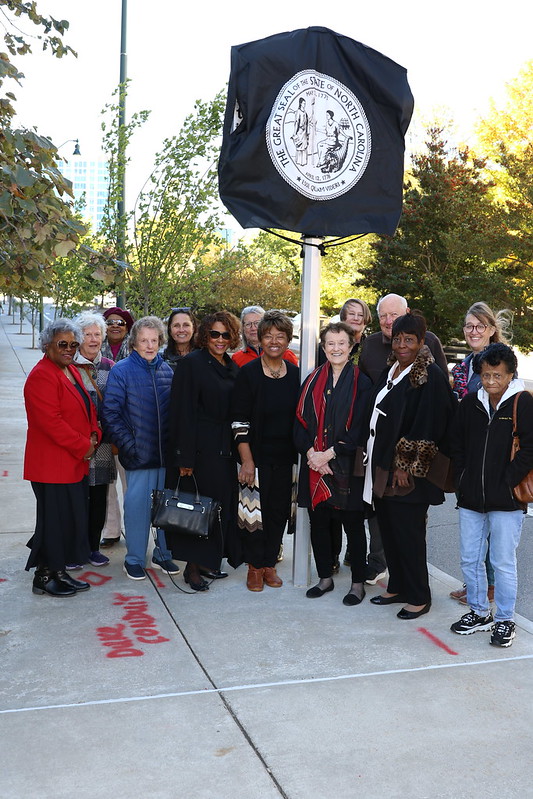
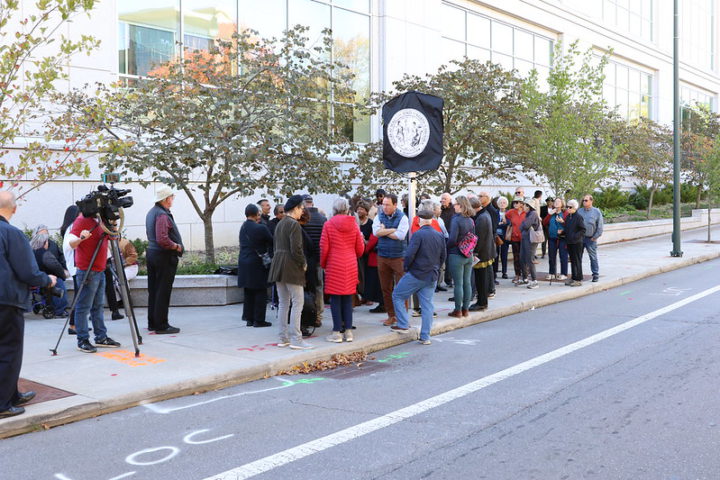



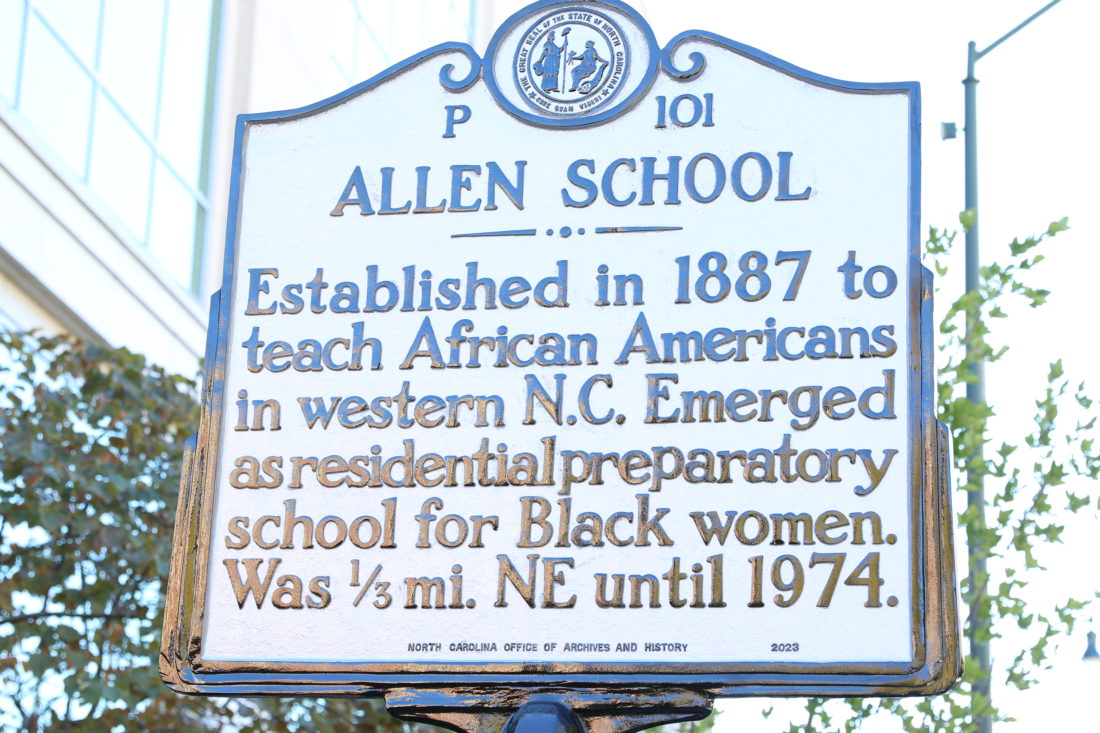
Before you comment
The comments section is here to provide a platform for civil dialogue on the issues we face together as a local community. Xpress is committed to offering this platform for all voices, but when the tone of the discussion gets nasty or strays off topic, we believe many people choose not to participate. Xpress editors are determined to moderate comments to ensure a constructive interchange is maintained. All comments judged not to be in keeping with the spirit of civil discourse will be removed and repeat violators will be banned. See here for our terms of service. Thank you for being part of this effort to promote respectful discussion.